As easy as cloning is to the masses
that use powder, liquid/gel rooting hormone, bubblers
and soil, etc. There is an even less complex method of
cloning that is so easy, it must have been around for
decades, if not centuries. The only ingredients involved
are water, light, and the cutting you would like to
root. In the example I?m going to show, I?ve cut three
different sizes of clone. The first with two leaves and
a single growing tip (S). The next has four nodes, but
still only a couple large leaves (M). The third is 6?
tall, has seven nodes and several sets of good-sized
leaves (L). As with normal cloning, you
immediately dip the cutting in the water for about 15 to
30 seconds, tweaking it to dislodge any air bubbles that
may be present. But the biggest difference is, you won?t
be removing the cutting from the water until it has
roots big enough to support the foliage above. Make sure
the cup, which contains the cutting, is opaque. This
prevents the light from shining directly on the roots.
So far, I?ve mentioned the cuttings and the
water, but the most important part is the light. I have
made this method work 100% of the time simply by sitting
my cuttings on a windowsill that receives no direct
sunlight. In fact, slightly shaded would be even better.
In the evenings (short days), I sit them on an end table
over 7 feet from a ceiling mounted 100-watt incandescent
bulb. At bedtime, I just turn off the lights like
normal, and when I get up in the AM its back to the
windowsill. During the longer daylight hours they can be
left on the sill full time. Remember, no direct
sunlight. The picture shows my three cuttings in
their water cups. M & L have barely an inch of water
to sit in. Any more and it would cover one of the leaf
stems. The smaller one stayed in the plastic because the
stem was too short to sit in water and stay upright in
the cup. Do what?s necessary to keep at least ? of the
stem in the water. Notice the glass that
diffuses light, an extra measure against too much light
exposure.
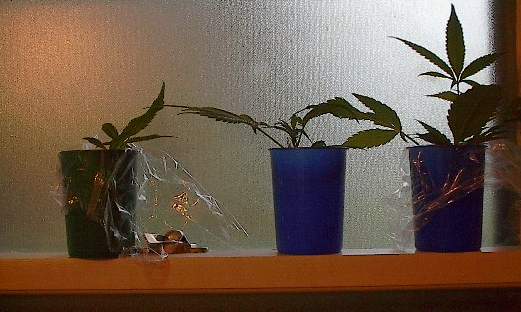
The clones grew roots at far different speeds. S
showed in seven days, with a small ? long root and
another small protrusion.
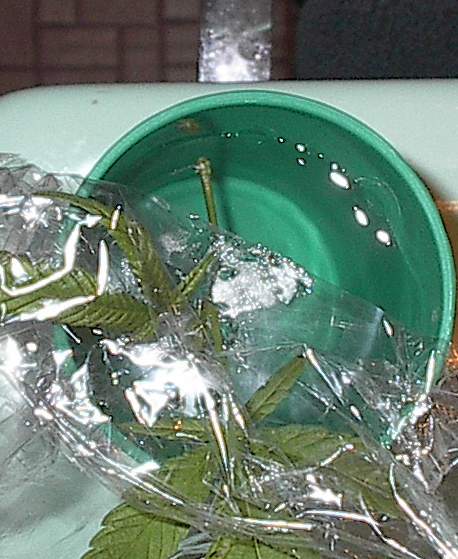
By the time S?s roots reached
this level of development (nine days), L was just
putting out the first nubs that would be roots. M has
shown no inclination of rooting at all. Searching for an
answer, I changed the water in Ms cup, but I think it
boils down too the thickness of the stem. Both M&L
have the same size stem but L has far more foliage on
top.
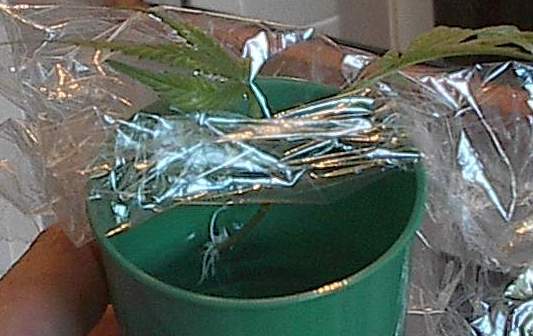
S is doing far better than the
others (seen below) and M is finally starting to show.
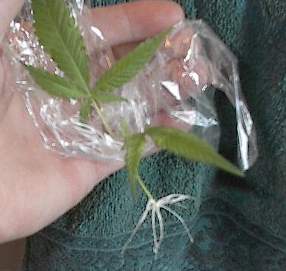
M showed roots in 14 days and was
planted on day 18.
This picture was taken just
before transplant.
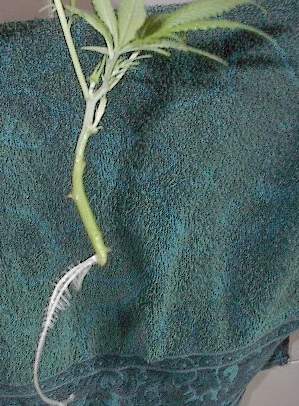
L showed roots on day 11 and was
in soil at day 18.
This picture was taken just
before transplant.
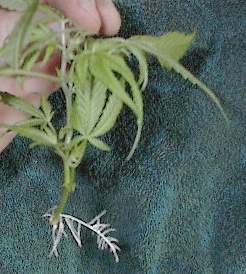
S showed roots at seven days and
was in the soil at 15.
This picture was taken just
before transplant.
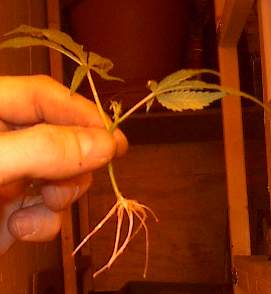
Transplanting is as easy as it
ever is. I use a pre-fertilized potting soil, mixed with
1/2 perlite. I like the clear cups as I can see how soon
they can be removed from the humidity dome. Fill a 4 oz
cup with soil mix and swirl a hole an inch deep in the
top, insert the plants roots and cover.
DO NOT
WATER!! Watering will actually delay the roots growth
into the new medium. You want it almost dry below so
they search for the moisture. Make whatever mix you use
semi-moist before transplant.
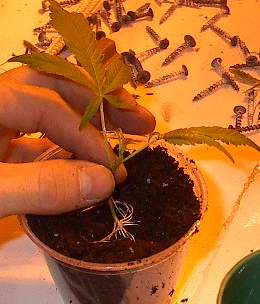
The dome you see is a cheapo
Styrofoam cooler available from any grocery store for
$2-$3. Toss the lid and cover with saran wrap with a 1/2
dozen 1/4" holes in it. What you see in the picture is a
spare piece of plexi I have. It sits off centre to
provide some venting. Simply set an open jar of water
inside and close. The jar itself will keep the humidity
at around 75%. If you don?t like this, just spray a
couple times a day with plain water.
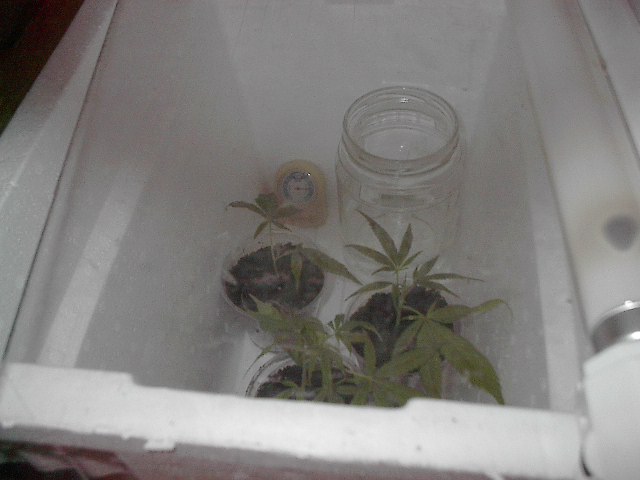
L showed itself almost overnight.
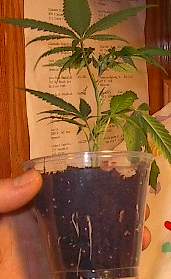
All were in the 320-watt veg area
in roughly three weeks from cutting to final transplant.
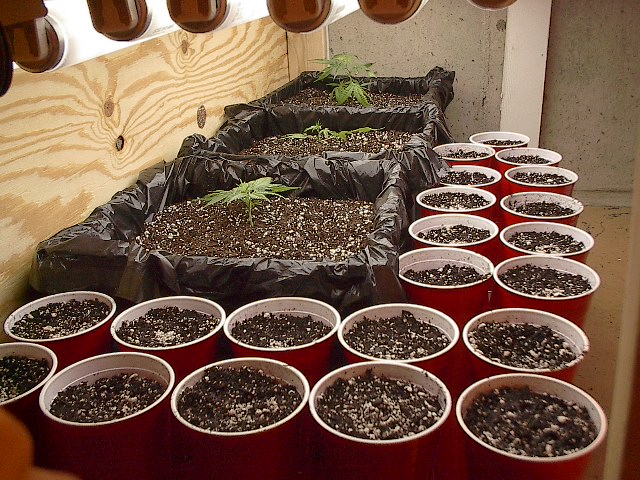
That?s it, the easiest cloning method
there is. No spraying, no overheating, no drying out, no
hormones, just plant, light and water. Following these
instructions, I?ve had a 100% success rate (The one that
died actually drank all her water and I forgot to
refill!). Good luck! |